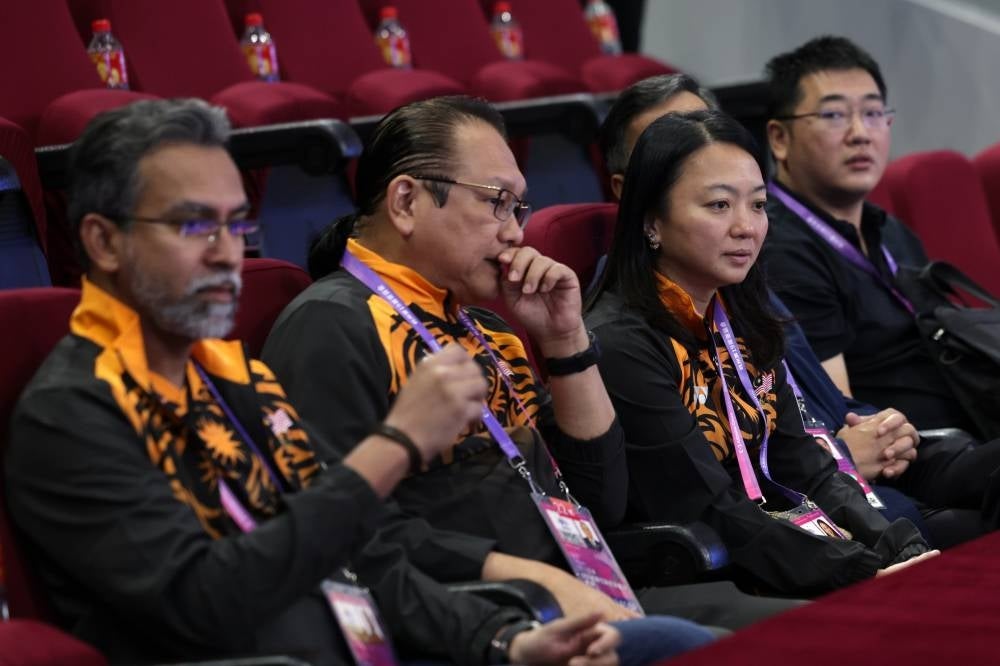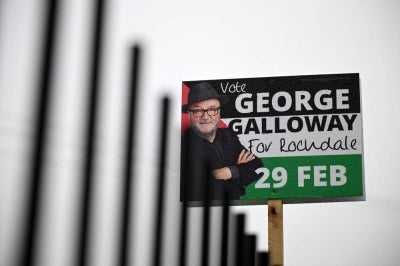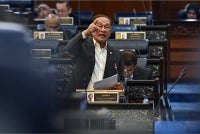Hannah's tenure gone a fast one too far
ARNAZ M. KHAIRUL
It has been 10 months since Segambut MP Hannah Yeoh was awarded to the nation as its new Youth and Sports Minister in what was initially seen as a sign of admonishment to the old practices that have long corroded sports, more so as a government built on promises of reform took its place.
In a nation that pretends to be a sporting one, the fact that the Youth and Sports Minister is the centre of our dialogue pertaining to sports issues instead of the sports practitioners, already proves we are not what we pretend to be.
For in the 10 months that Hannah has helmed the Youth and Sports Ministry, the sports pages have been awash with political narratives masqueraded as sports news, while the minister has been raised to a pedestal on which she is now tripping off.
Critics, initially willing to give this minister the benefit of time considering her own admission upon taking office on Dec 3 last year that she was not from a sporting background but wished to empower sports through policies, are now frantically sounding the alarm.
While Hannah may be forgiven for her lack of knowledge, passion or grip of the sporting spirit, she has to be called out for overdoing her political gamesmanship, even utilising the government machinery at her disposal for that purpose.
While the last straw was the highly condescending joint media statement made by the National Sports Council, National Sports Institute and the Olympic Council of Malaysia two days back, seemingly taking aim at critics, even blaming them for not appreciating the sacrifices made by athletes to perform for the nation, there is a long list of fumbles which requires the attention and understanding of Prime Minister Datuk Seri Anwar Ibrahim, that this portfolio needs a revamp via his impending Cabinet reshuffle.
That press statement clearly was another effort to reinforce the defiant stance of agencies, officials and the minister herself in their total disregard for accountability pertaining to expenditure in excess of RM300 million for high performance athletes preparations, particularly the so-called Road to Gold programme, for which they are clearly trying to use the athletes as a shield against questions after the failures of the 2023 Sea Games in Cambodia and the just concluded Asian Games in Hangzhou, China.
Presenting the six gold, eight silver and 18 bronze medal haul as a "success" clearly shows a disregard for even the basic facts, which shows a decline from the seven gold, 13 silver and 16 bronze medals achieved at the 2018 Asian Games in Jakarta. That this statement came from bodies entrusted with the development and progress of sports, more so the nation's athletes, is rather worrying.
Critics will also not forget how the sports world was enlightened by the Youth and Sports Ministry over a new formula, in which no official gold medal targets apparently help athletes focus better thus were able to deliver less medals at the Asian Games than they did four years ago.
This apparently came upon advice of the Nippon Sports Science University, which a team from the said agencies had visited earlier this year, at the time reported as a tour to learn how the Japanese developed women's sports.
No research papers to validate such studies have been discovered, thus the Nippon Sports Science University themselves should step forward and inform the sporting world that it was in fact them who advised the Malaysian government to set such policies, while the Japanese government clearly to do not adhere to that and announce the medal targets of their contingents to all multisports events.
This needs to be clarified mainly because without clear scientific evidence apart from the Malaysian contingent to the recent Asian Games delivering less medals than they did four years ago because of this policy, as acknowledged by National Sports Council athletes' preparation director Jeffri Ngadirin, who called it a success, this is already an embarassing statistic for the Nippon Sports Science University.
If it is found to be a fabricated narrative merely to shield officials responsible for the programmes and the minister from questions over failure at the Asian Games, then critics will also see this as an attack on the core spirit of competition and sports, where the best athletes thrive under the pressure of targets in an industry where pressure is its lifeblood.
Coming from the top sporting bodies of the nation, such policies can have a damaging impact right from the grassroots, where targets and pressure are what young athletes are thought to deal with the moment they chart their careers.
World champions and Olympic gold medallist become what they are because they carry the burden and the pressure to deliver both from their nation and themselves.
One nation simply cannot be spending hundreds of millions of ringgit via government sports agencies on the preparation of athletes each year and tell its people that they have no targets. It is simply irresponsible and devoid of accountability.
Out of targets to blame, the media too had become scapegoats as the ministry used the pressure due to intense media coverage as a reason Malaysia failed at the Sea Games in Cambodia.
Another dumbfounding excuse, considering the Youth and Sports Minister is gauged as receiving more coverage via sports pages than most athletes.
Perhaps it was the media's assistance in helping highlight Hannah's intent on addressing former All England champion Lee Zii Jia's drop in form by meeting him for coffee in March that is clearly to blame, for it has been since then that the Kedah-born has earned a lengthy string of early round exits in tournaments.
While it was clearly just a sporting issue in which an athlete was going through a patch of poor form which usually is resolved among the player and his support system, the media was to blame for providing coverage on Hannah's piling of pressure on Zii Jia by turning it into a national issue.
Sports needs to be spared the clutch of political manipulation.
For what those who have bowed to it must learn from Hannah's unfortunate tenure thus far, is that sports runs on reality, not political narratives.
As a nation, we need to address our sporting failures in order to progress and we have long been fine with that, not branding them as successes simply to protect the image of politicians.
Thus trying to imagine a future with such policies and narratives in place, surely leaves us scraping for a semblance of sporting values to dictate it all.
Arnaz M. Khairul is a sportswriter, media consultant and former South East Asia representative of the International Association of Cycling Journalists (AIJC).
The views expressed in this article are the author's own and do not necessarily reflect those of Sinar Daily.
Download Sinar Daily application.Click Here!














